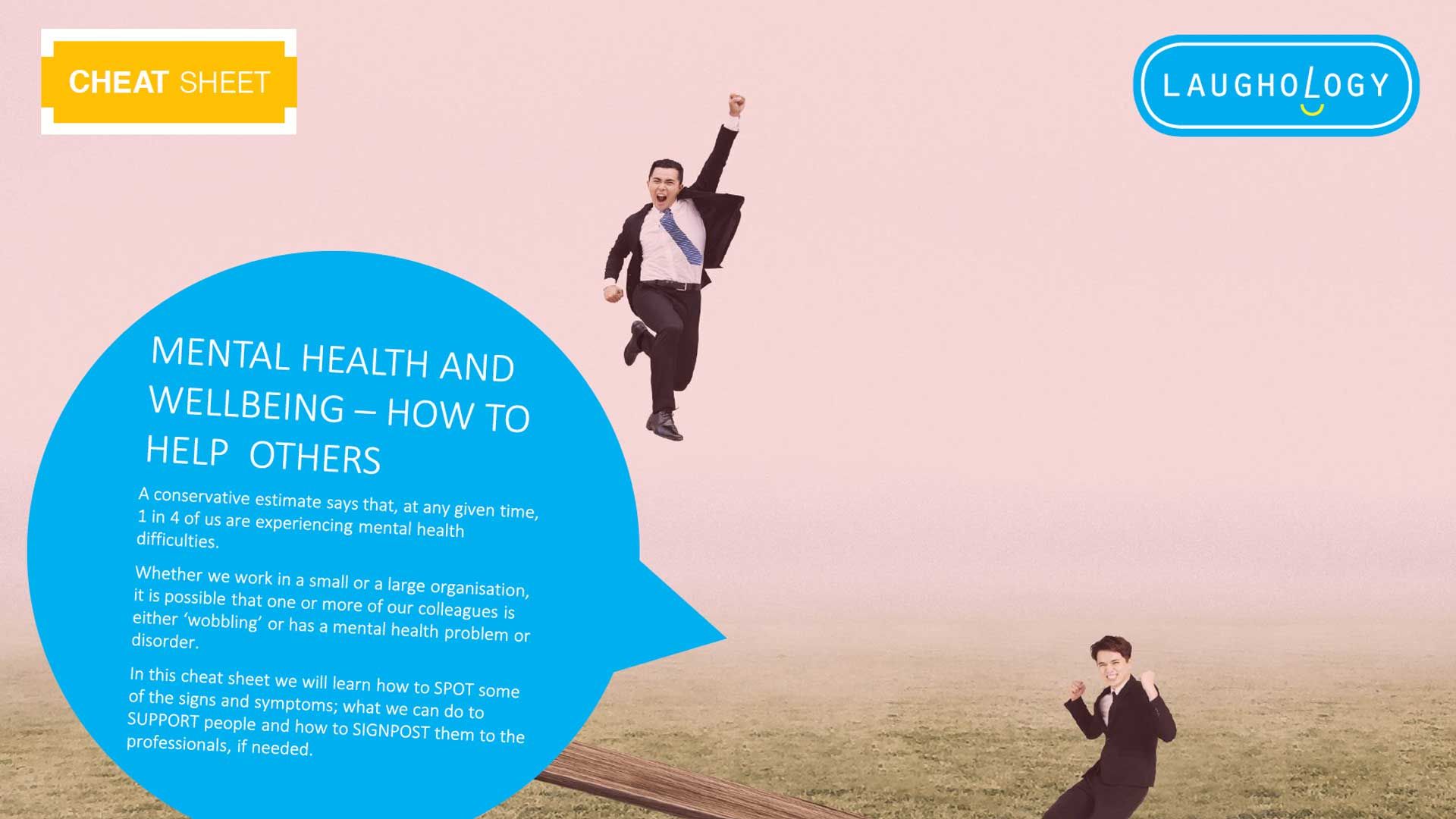Mind the Gap. Returning to work and mental health after Covid-19
Module 2 - Looking After Yourself and Others
Watch
Spot, Support and Signpost

Find out more about the Laughology Mind the Gap mental health virtual workshop ...
Read
How to Support Others with Mental Health
When we enjoy good mental health, we have a sense of purpose, the drive to do the things we want to do and also the resilience to deal with the challenges that happen in our lives.
However, just like our physical health, our mental health can change and fluctuate. It moves up and down, travelling along a continuum from good to poor. It’s affected by a range of factors, both inside and outside of work.
We know that mental health awareness is increasing, but we also know that some people still find it hard to talk about. Asking for help can be a struggle, but so can offering help - for fear of saying or doing the wrong thing.
Often we worry how to approach a conversation about someone’s mental health, but helping someone doesn’t have to be hard. You don’t have to be a psychologist either. There are no special skills needed, just the ones you use every day like being approachable and empathetic, as well as using your listening skills. Doing nothing and brushing things under the carpet just makes matters worse.
Good mental health at work and good management go hand in hand. There’s strong evidence that workplaces with high levels of mental wellbeing are more productive.
Spot, support, and signpost
It all starts with asking someone how they are doing and genuinely caring. If you get the stock answer of, ‘fine’ but you suspect that they aren’t, then ask a few more questions. Don’t interrogate them. Just letting someone know you care is a good way to open a conversation.
If people do want to talk about how they’re feeling, it must be in a place where they feel comfortable. You must also have the time to listen. The last thing anyone needs is to feel rushed or that you’re not interested. It’s also important that you give your full attention to the person and minimise disruptions like your phone ringing, emails popping up or people just nipping in and out.
Active listening is vital and that means being present and engaged in a conversation. Repeat what they have said back to them to ensure you have understood. This is powerful as it shows them you care. When the conversation ends, recap what you have discussed and agreed to. Ensure you do what you’ve said you’ll do, as this will help build trust.
It can be hard to hear difficult or upsetting things, so suspend any judgment. Don’t try to fix them. Listen with empathy, saying things like, “I don’t know how you’re feeling but I can see that you’re upset,” is better than saying you ‘understand’.
Ask open questions but not too many. Give them time to answer. As a former police officer, you can imagine that this took me a while to refine!
Give them some tips on wellbeing and share what you do. We know that exercise, having a healthy diet, taking a break and connecting with others can help protect our mental health and sustain wellbeing. Ask what has helped them in the past and what you can do to help.
Encourage them to get support, if needed, from external agencies or HR, and signpost them to places that they can get resources to self-help.
By having open conversations and implementing strategies about mental health, we can help remove the stigma.
























